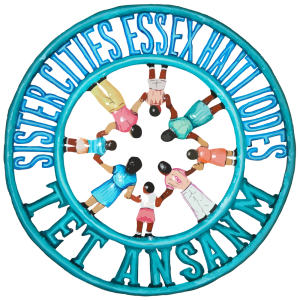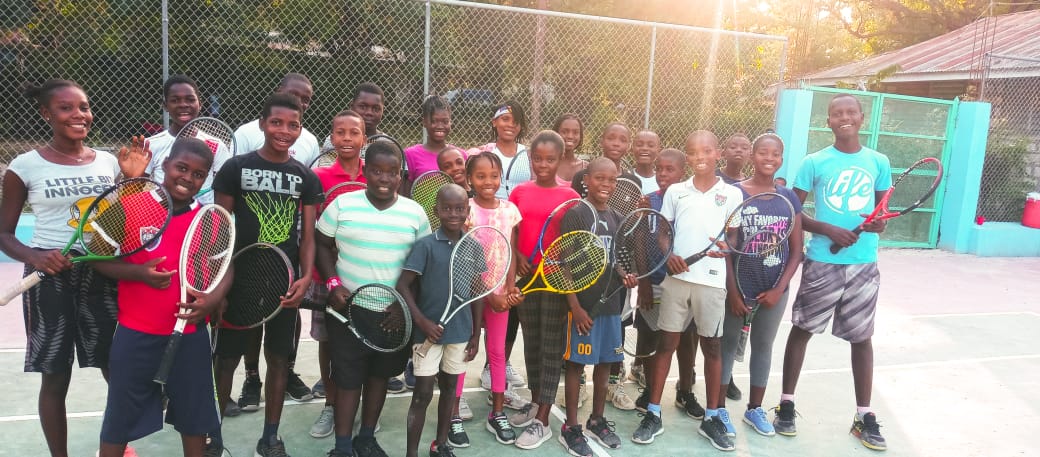By James Blackwell. February 2012. Upon arrival we were crammed onto a bus. The bus brought us to a doorway where we were greeted by a local band playing traditional Haitian music. Once inside, we were surrounded by hundreds of people yelling at us and trying to grab our luggage. We had no idea what they were saying; all we knew was that they wanted to get paid. We were pushed and jostled through the throngs until we got to the conveyor belt that carried our ten checked bags filled with donations for our mission. Other locals descended on us, the blancs, to gain employment even if only for a few minutes. I was very shocked at how little order there was and how great the chaos.
The walk to the car was jarring. Trying to get through all of the people was nearly impossible, even with all of the cars laying on their horns threatening to run over the people standing in the middle of the road. The locals seemed unfazed by the cars; it was as though they didn’t even notice them. There appeared to be no rules just a need or desire to get from point A to point B. The vast differences between the U.S. and Haiti shocked me. I guess you could say I was sensing a bit of culture shock, especially when we started driving through the “city” of Port Au Prince. As we started driving, it just got more and more disconcerting. People live in houses or “tents” made out of tarps and whatever scraps of metal they could find held up by branches.
I expected, and I knew, the culture in Haiti would be different but I was not prepared for what I was experiencing. It is normal to walk around in battered clothing and not bathed. It’s normal to walk past stray dogs, chickens and goats eating from mounds of trash without even being aware of them. It’s also normal to buy a packet of water, drink it, and just throw the packet wherever. There are few trash cans in Haiti. The amount of trash that just lies around in the streets, the sewage, and the water is ridiculous, and they don’t understand that it’s bad. It’s just the way they live and they don’t know any differently, especially the children. What they do know, is that they have to survive. I felt unsure if not a little afraid. I felt pity and maybe a little disgust. I’m ashamed to say that I was anxious to go home. But we were traveling to Deschapelles, Haiti to introduce a new tennis program. Jenifer Grant, our hostess for the week is the step-daughter of Larimer Mellon and Gwen Grant the founders of Albert Schweitzer Hospital in Deschapelles and as such is familiar with the locals, their language and their customs.
Our goal was to help tennis pro John Delong in his quest to teach the locals tennis and the Haitian coaches how to be better coaches. What I thought was most challenging was the language barrier; so much instruction was lost in translation. But what I realized was that it wasn’t so much the language barrier as a learning barrier. Most Haitians have never been involved in a structured learning environment. Because the majority of Haitians cannot afford the three hundred dollar annual tuition to send their children to school, organized instruction is a novel concept.
Public schools are non existent in Haiti. If a family can afford to send one child to school they have to choose which child they think shows the most promise. For example one of the head coaches, Walter, was illiterate, while his brother was a teacher. Having seen this I have a much finer appreciation for the luxuries we have in the US. Public schools are free up until 12th grade. In contrast to the plight of the Haitians, it is an amazing extravagance that most kids –and perhaps many adults too -don’t appreciate. There is so much that we as Americans take for granted. If any of the Haitians got the chance to live an American’s lifestyle, they wouldn’t take any of it for granted. There is so much that I have taken away from this mission and so much of it is unexplainable that it is really hard for me to tell anybody who asks, “How was your trip?” All I can say is, “It was unreal.”
Walking down the main corridor of Deschapelles in the waning light of our final day with just my mother I realized… I felt safe, comfortable. I felt an affinity for the people and the place. While I may have been ready to go home, I wasn’t ready to leave. This week long event changed my life by showing me how blind I have been. It opened my eyes to the simple but priceless gifts which have been afforded me: plentiful food, comfortable shelter, clean water and, of course, education.

